Best Male Characters for International Men’s Day
Not all men. Specifically these men.
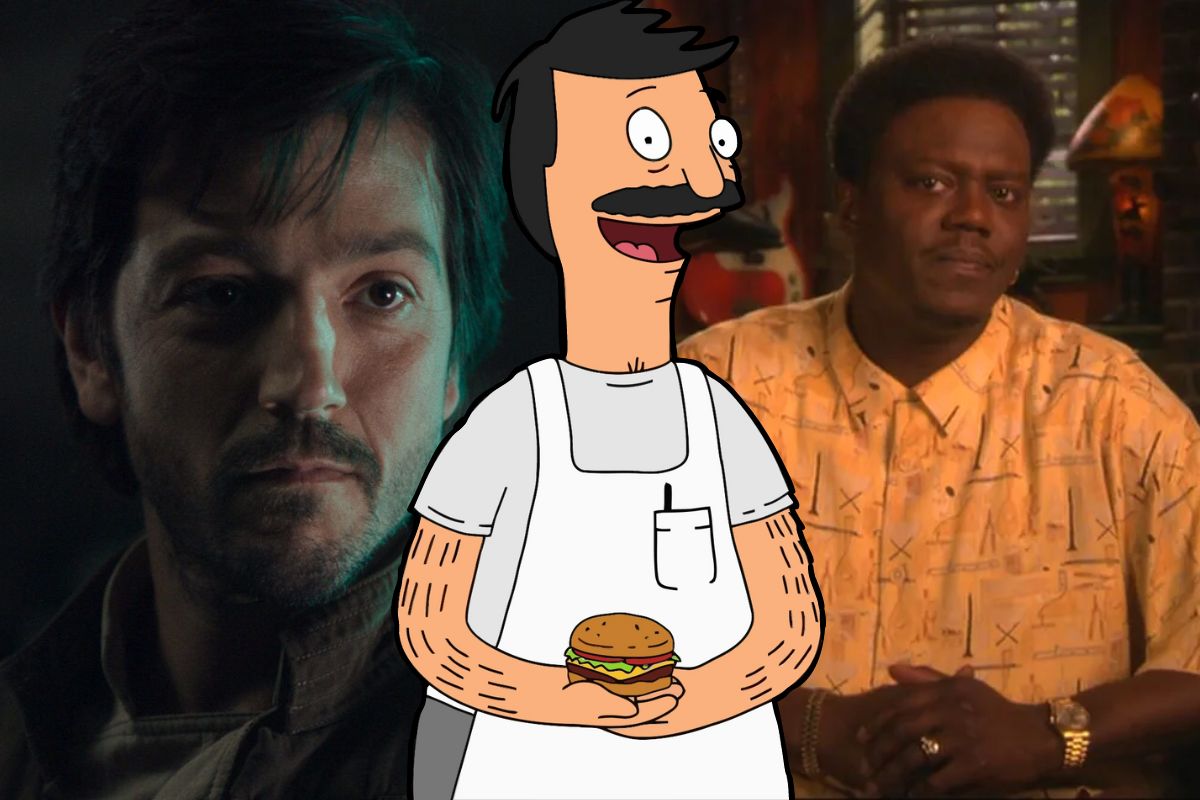
It’s International Men’s Day! You know, that one day a year (besides the other 364 days) to celebrate men. In addition to being a day to highlight issues faced by men, it also exists to celebrate men and promote positive masculinity in all its many forms.
To celebrate IMD, we here at The Mary Sue want to pay tribute to a few of the many wonderful male characters in our favorite works. Although there are countless compelling male characters out there (some with better personalities than others), the characters on this list specifically embody positive masculinity, portraying traits like kindness, empathy, and vulnerability. Here are The Mary Sue’s top male characters!
Gomez Addams (The Addams Family)
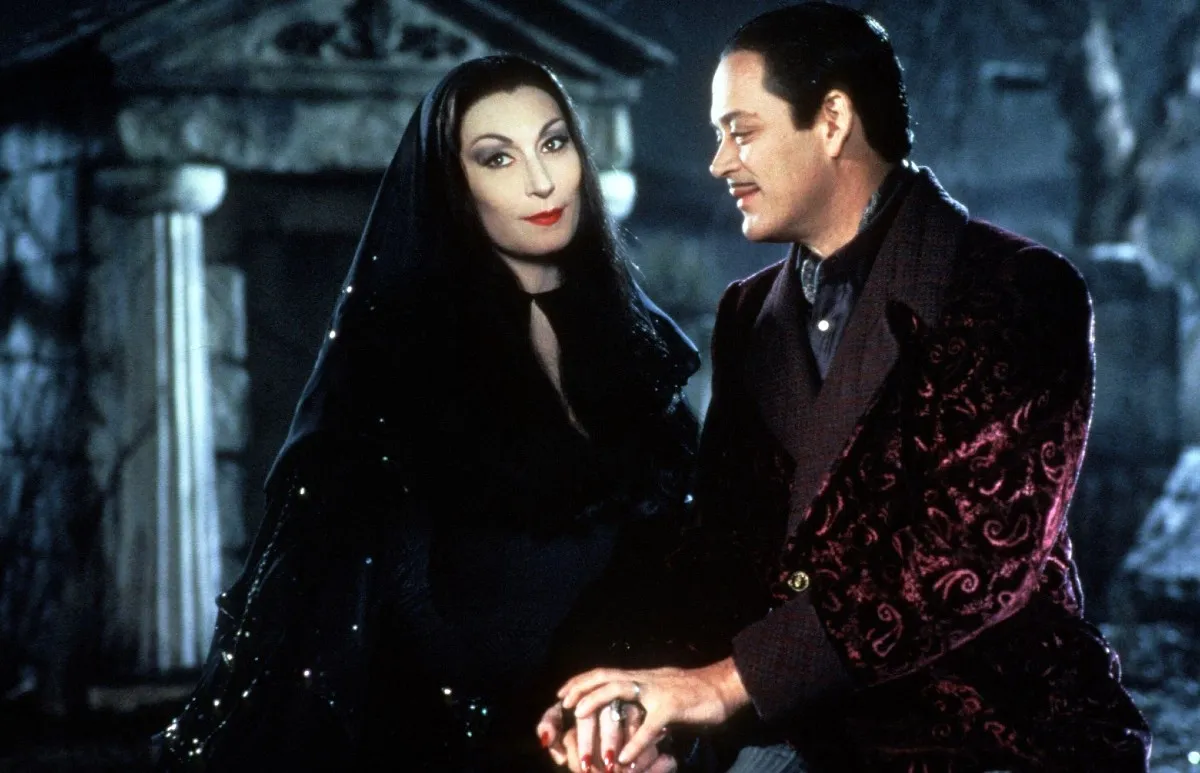
Gomez Addams is the pinnacle of fictional husbands. He is hopelessly devoted to Morticia, and every version of Gomez, from comics to television to film, does an excellent job of portraying his unending love for his wife. Even better, he’s a great father to his children, a loyal brother to Fester, a sublime son, and a talented fencer! He is the icon, the standard to which all men should aspire to be when it comes to their partners and families. (Kimberly Terasaki)
Aziraphale (Good Omens)
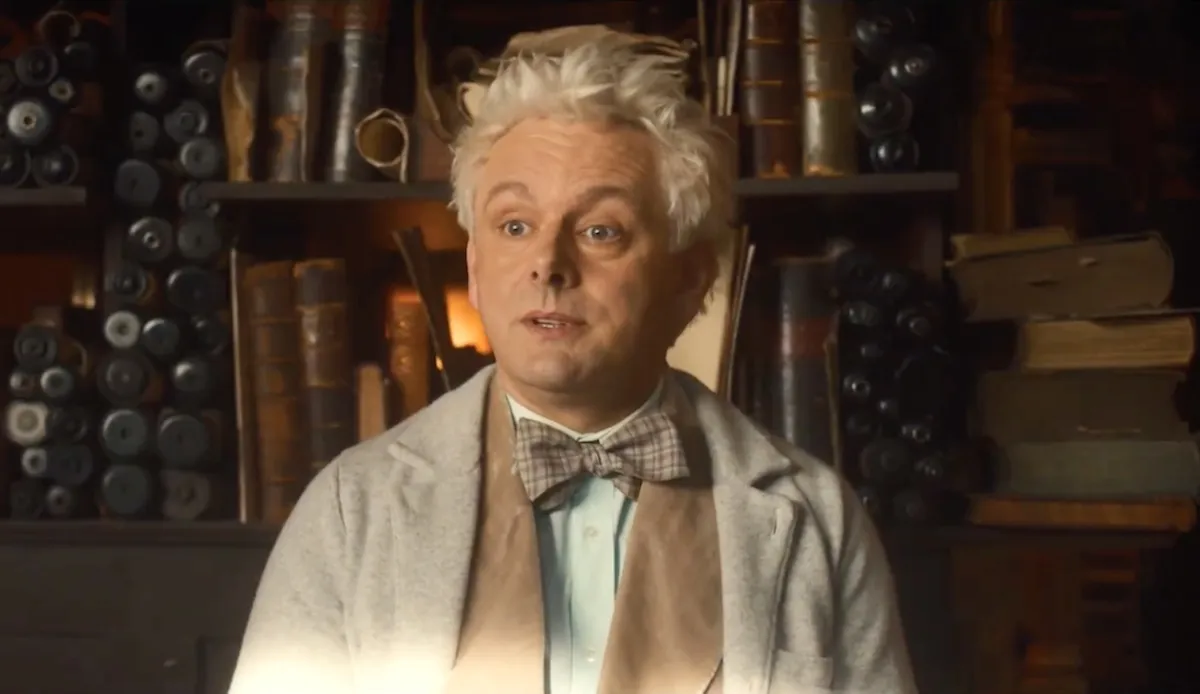
According to Good Omens co-creator Neil Gaiman, angels don’t technically have genders. But since Aziraphale (Michael Sheen) presents as male, I think he counts for the purpose of this list. Aziraphale is everything you could ask for in a guy: he’s kind, compassionate, and stout-hearted. He’s the kind of person you could spend hours listening to records with, but he’s also got your back in a demon attack or apocalypse.
Of course, Aziraphale isn’t perfect, as the season 2 finale of Good Omens shows. But if positivity depended on perfection, then we’d all be pretty screwed. (Julia Glassman)
Hiro Nakamura (Heroes)
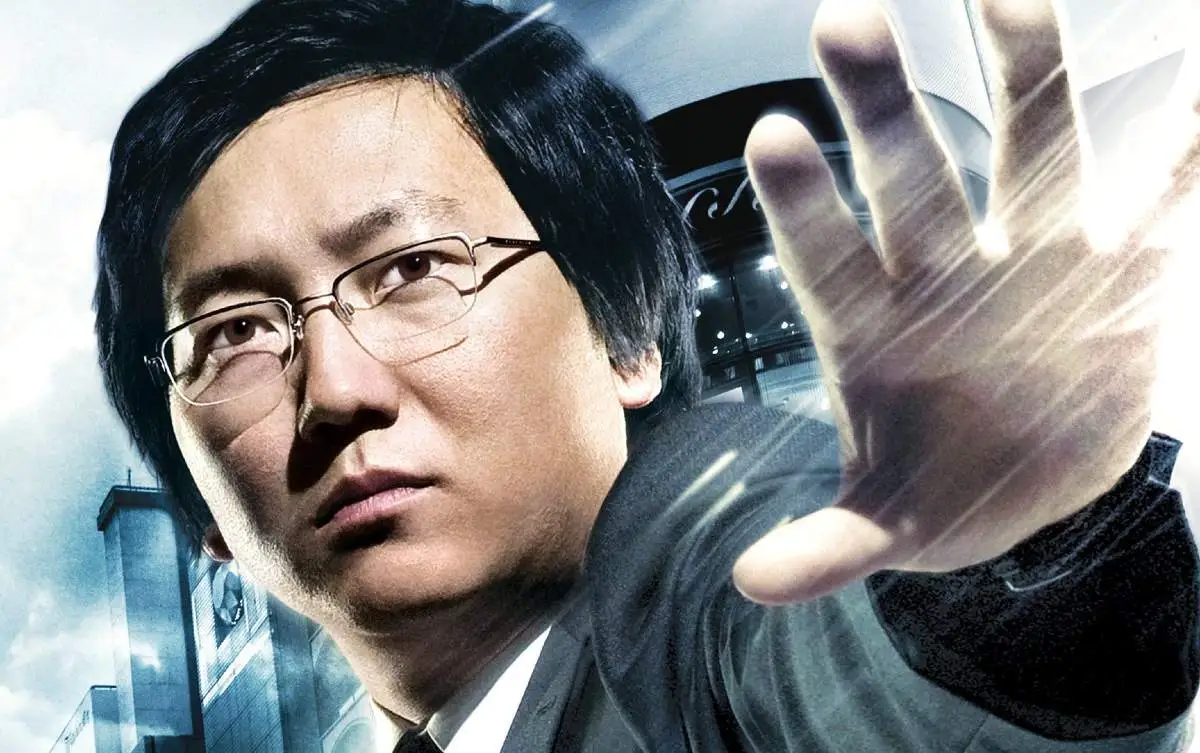
The show Heroes was full of fun characters, but Hiro Nakamura (Masi Oka) stood out. He’s a fanboy who worked in a mindless office job and dreamed of better things. When he seemingly manifested his superpowers, Hiro immediately wanted to help people.
Even though he can control time and space, Hiro is still a down-to-earth guy. Future Hiro is a little jaded compared to Present Hiro, but even with his cool fighting skills, he would never hurt anyone if he didn’t have to. Heroes ended years ago. Yet whenever I do something I’m proud of, I hear Hiro yelling “Yatta!” in his joyful way. (D.R. Medlen)
Jeevan Chaudhary (Station Eleven)

We’re all familiar with the science-fiction/fantasy trope of a tough, rugged man who softens after he unexpectedly finds himself caring for a child. However, watching a “regular guy” undertake this journey is wholly different and a great avenue to explore various types of masculinity beyond a binary template. One of the best examples of this comes from Jeevan Chaudhary (Himesh Patel) in Station Eleven.
Overshadowed by his successful siblings and (in the book) doing work that feels exploitative, Jeevan feels like a failure. He’s lost and bitter. His emotions reflect many men’s lives because as society has grown more gender-inclusive, many men aren’t sure of their place in the world. Instead of taking out his anger on women or another marginalized group, he kind of just floats through life without purpose. In the apocalypse, Jeevan finds moments of joy and meaning in helping others survive—in kindness and in acts of service. The idea of finding purpose when the world is ending is a major motif in the show. First, this came when he shepherded the main character as a child. By the end of the story, this sense of purpose grows into something bigger as he’s able to help a large community. (Alyssa Shotwell)
Kanan Jarrus (Star Wars: Rebels)
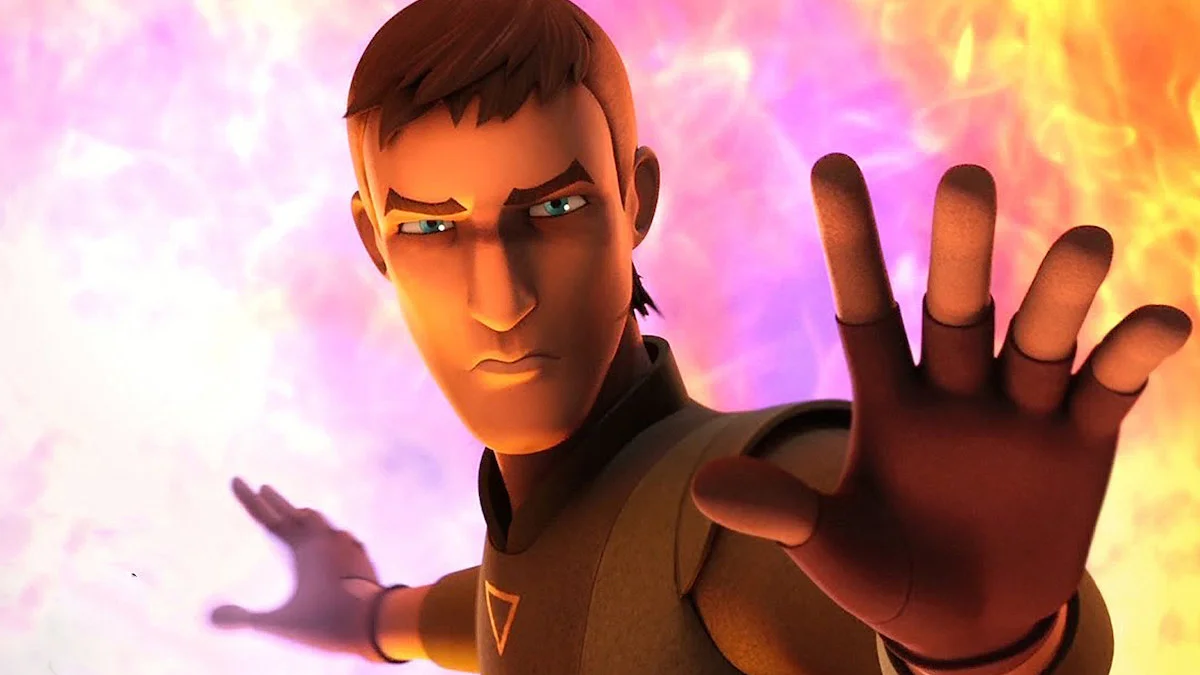
Despite having been only a padawan during Order 66 and the fall of the Jedi, Kanan Jarrus does his best to mentor Ezra Bridger and fight the Empire in his own way. Kanan is more concerned with helping people than fighting a war. In doing so, he ultimately becomes the pinnacle of what a Jedi should be: always willing to help someone in need, no matter the personal risk. He’s also a visibly disabled protagonist and that part of his story should not be discounted. Kanan and Hera Syndulla’s relationship is also among the healthiest in Star Wars, with the two occasionally disagreeing but still supporting each other as they do their best to help the galaxy in their different ways. (K.T.)
King T’Challa, a.k.a. Black Panther (Black Panther)

T’Challa is exemplary in every role he holds: a king, a son, a brother, and a superhero. Brought to life by an incredible performance by the late Chadwick Boseman, T’Challa shoulders a lot of burdens, but he does so with grace, empathy, and wisdom. Whether he’s protecting his kingdom from hostile nations, helping to save the universe from Thanos, or just gently riffing with his sister Shuri, T’Challa embodies the very best of positive masculinity. (J.G.)
Samwise Gamgee (The Lord of the Rings)
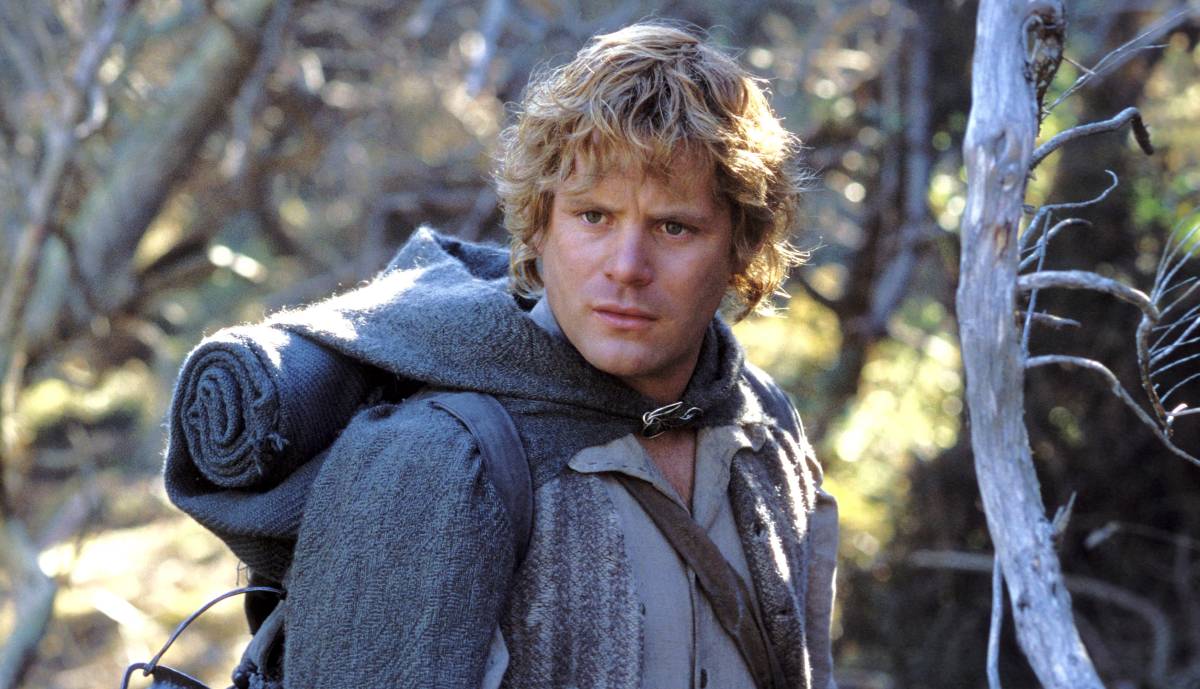
Most of the male characters in The Lord of the Rings are fantastic examples of masculinity. They have deep friendships and aren’t afraid to shed some manly tears. But Samwise Gamgee (Sean Astin) is the king of them all. Uprooting his life in the Shire, Sam unquestionably goes on an epic journey with Frodo. Sam battles for Frodo and carries him up the side of an active volcano. He’s just out there supporting his bro.
Armed with only frying pans, he can take down orcs AND make you some tasty taters. Talk about a man that can do both. Sam wears his heart on his sleeve and is loyal almost to a fault. He almost drowned himself making sure he kept his vow to Gandalf to watch over Frodo. Unlike many other characters, the One Ring has zero sway over Sam. All he wants to do is get back home and eat some hearty food, maybe get married. Isn’t that everyone’s dream? (D.R.M.)
Bernie Mac (The Bernie Mac Show)

I’d put Bernie McCullough (an exaggerated version of series star and comedian Bernie Mac) among the best of TV fathers. He stands sits next to father figures like Bob Belcher (Bob’s Burger), Hal (Malcolm in the Middle), and Louis Huang (Fresh Off The Boat). What made him so special was the circumstances in which he became a father figure to his family. When his sister enters rehab, child-less Bernie and his wife, Wanda (Kellita Smith) take in his nephew (a preteen) and nieces (a child and a teenager). It’s supposed to be a short-term arrangement, but life happens.
Because Wanda is the VP for AT&T and he’s a stand-up comedian, Bernie largely raises the kids by himself. In a lot of ways, Bernie starts as an example of toxic masculinity. His parenting adheres to the traditional “because I said so” and “I make the money” approach. Bernie loudly struggles with how his teenage niece explores her womanhood and he pushes his nephew to “man up.” However, he learns how the tough love he was raised on is harmful and adjusts over the course of the show. I wouldn’t call Bernie’s style soft parenting by any stretch of the imagination. Also, the kids aren’t always right because the world is shades of gray. Still, through compassion and reflection, he’s able to not just be the parental figure his family needs, but also a better man in the process. (A.S.)
Ethan Winters (Resident Evil)

Ethan Winters of Resident Evil 7 and 8 is another amazing husband and father who goes above and beyond for the ones he loves. Despite having next to no experience fighting the undead, he plows onward and upward, decimating hordes of Bio-Organic Weapons and monsters to rescue his family. But that doesn’t mean he’s a near parody of masculinity like the boulder-punching Chris Redfield. No, Ethan still has a lot of gentle moments with his wife and daughter that show he would be much happier just getting to live peacefully with them. (K.T.)
Peeta Mellark (The Hunger Games)
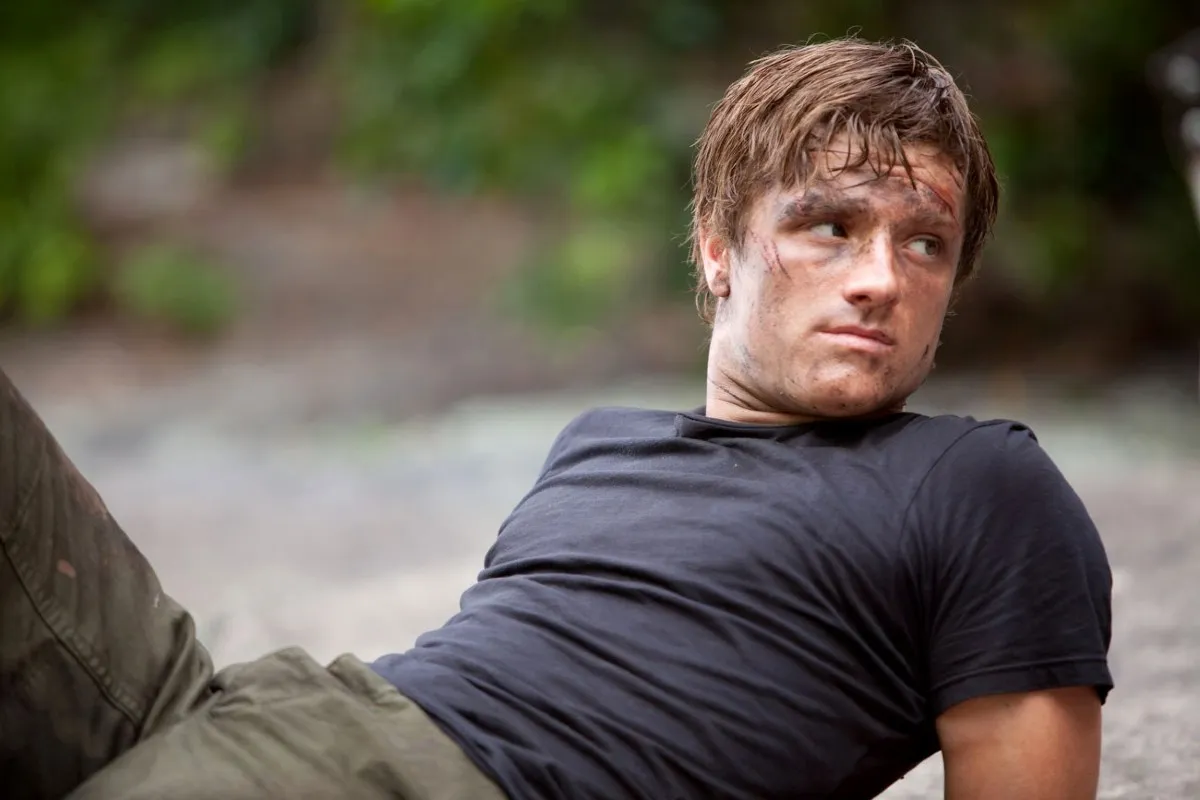
Peeta Mellark (Josh Hutcherson) was a wife guy long before he married Katniss Everdeen in the Hunger Games series. Peeta is a simple man who loves baking, creating art, and being with Katniss. Going into the Hunger Games, Peeta finally got to be with the lady he loved from afar for most of his life. But he was pretty sure from the start that he wasn’t making it out alive. He was alright with that, as long as Katniss made it home safe. Thanks to Katniss, Peeta also survived. Even though the Capitol tortured him and tried to turn him against Katniss, Peeta recovered from his trauma. After working to defeat President Snow, Peeta spent the rest of his life dedicated to Katniss and their children. Gale could NEVER. (D.R.M.)
Waymond Wang (Everything Everywhere All At Once)

Regardless of gender, Waymond Wang (Ke Huy Quan) from Everything Everywhere All At Once is one of my favorite characters of all time. He’s caring, empathetic, and supportive of those that he loves. At first, it may look like Waymond is a naive pushover. However, he does know his worth and is proactive in the background. There are a lot of versions of Waymond in the film that represent the types of masculinity most often glorified in media—especially the genres that makeup EEAAO. There’s the Alpha Waymond as well as the Waymond that got away. Main Waymond’s power of empathy is written off when it’s actually the force that saves them in the end.
Even beyond the story, the significance of this role and performance is huge. For most of film history, Asian leads have been demasculinized and made the butt of jokes. Over the past few years, Hollywood has featured more Asian men playing “traditional” masculine roles and, in some cases, feeding into the new trope of the Asian Himbo. Waymond expanded the scope of masculinity on screen across racial lines. Quan’s performance also gave us one of the most romantic lines in film history. (A.S.)
Bob Belcher (Bob’s Burgers)
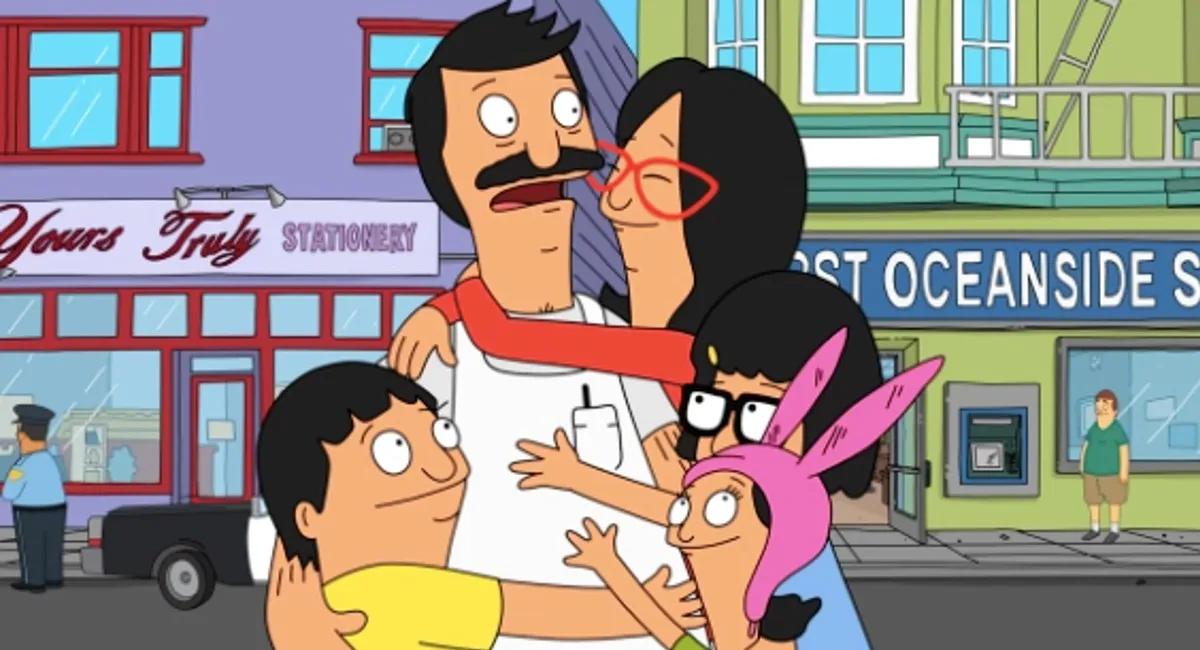
Everything about Bob’s Burgers is wonderful and wholesome. Most of that vibe comes from the man himself, Bob Belcher (H. Jon Benjamin). Bob grew up with a father who is of the toxic masculinity generation. However, Bob is open about his feelings and shares everything with his wife, Linda.
Right now, Bob might be the best example of fatherhood on television. He does everything for his kids, regardless of how he feels about it or if it causes him bodily harm. What other TV dad would dress up as a magical pony to infiltrate a toxic fan group for his daughter? He’s satisfied just making fun, tasty burgers with his family. He loves Thanksgiving just because he can cook an awesome meal that day. Plus, he’s a bisexual icon. (D.R.M.)
Cassian Andor (Rogue One, Andor)

Cassian Andor (Diego Luna) is perhaps the most complex Star Wars protagonist. When first introduced in Rogue One: A Star Wars Story, he was an enigma, a ruthless spy in service to the rebellion while also playing the optimist to Jyn Erso’s cynic. He was tortured by the awful things he’d done in the name of the rebellion. But still, he knew that the Rebels would have to take matters into their own hands if real change was to be made in the galaxy.
Andor is also a gem of a Star Wars show, telling a layered story about how a man becomes a rebel. Despite his tendency towards cutting and running, the show emphasizes that Cassian cares deeply about his loved ones and is mostly focused on keeping them and himself alive. It says a lot about Cassian that his big hero moment in the final episode sees him saving one of his best friends from right under the Empire’s nose. (K.T.)
Allan, Barbie

In the pink dichotomy of Barbie, there are infinite variations of Barbies and Kens. But there’s only one Allan. Michael Cera embodies Ken’s BFF with a nervous energy befitting a doll whose only role is to be Ken’s friend. He fits into Ken’s clothes! That’s something! But when the Kens get swept up in toxic masculinity, the only man standing outside the Mojo Dojo Casa House is Allan. He’s the only one with real-world experience, and he’s the only man to team up with the Barbies to break the spell of misogyny. In a world of Kens, be an Allan. (Chelsea Steiner)
(featured image: Walt Disney Studios Motion Pictures/20th Century Fox)
Have a tip we should know? [email protected]


